Accessible playgrounds: 'Disabled children are being left out of playgrounds'
- Published
- comments
Accessible playgrounds: Campaigning for play areas for children with disabilities
A charity is calling on the government to make sure all children have access to playgrounds.
Newsround has spoken to two children who say they are not able to play in their local playgrounds.
Research for Scope (who campaign for equality for disabled people) released in May 2022 found almost half of families (49%) feel their local playground is not accessible.
They questioned 1,000 parents of disabled children aged under 12 in England and Wales.
One in seven parents said they could not enjoy the playground as a family because siblings could not play together.
Scope is calling for national governments to put aside a pot of money to improve and refurbish playgrounds.
More than 31,000 people have signed a petition from the charity calling on the UK government to support accessible play.
An accessible playground is one which can be accessed easily by wheelchairs.
An inclusive playground is designed to include children with different disabilities so they can enjoy the equipment and play equally.
Seth's story
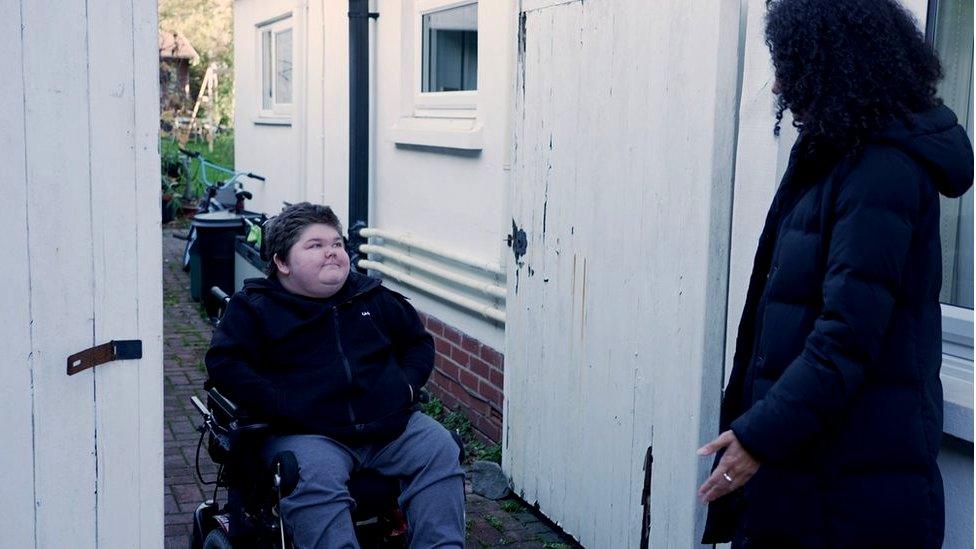
Seth says he wants everything to be "equal"
Seth is 13 and although he now prefers playing computer games rather than playing in the playground, he wants to change things for children that are younger than him.
But there's another reason why it is something he feels so strongly about.
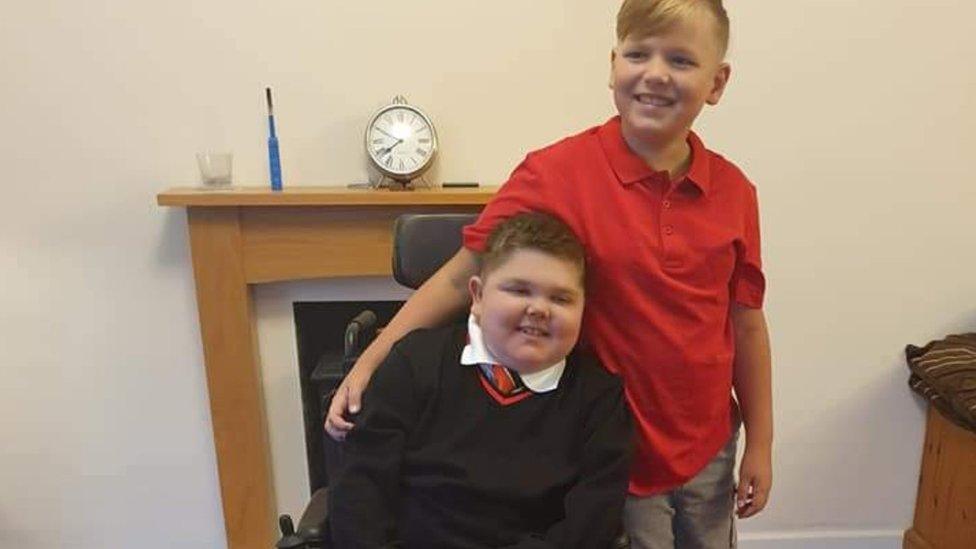
Seth and his brother Reggie are "inseparable"
Seth has two brothers, Reggie (11) and Eli (6).
Seth would love to be able to play with his brothers or at least be able to be near them when they are playing but with his electric wheelchair, he can't always reach the playground.
That's because the closest playground to his family is in the middle of a park and there is no path to it. When it is muddy, the wheelchair can not go on the grass so Seth has to wait while his brothers go to the playground.
Seth's brother Reggie told Newsround it can be upsetting when the two can't play together.
"It makes me disappointed and also him" Reggie said.
"We are both inseparable, we love all the same stuff but we can't do it sometimes."
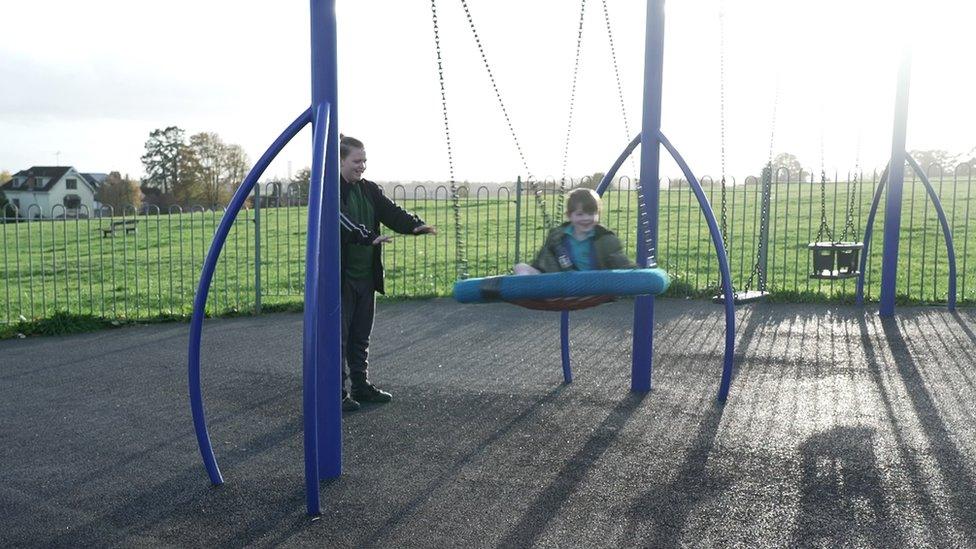
Reggie says he can't always hang out Seth as much as he would like to
For Seth, although he is older now, and not so interested in playing in playgrounds as he used to be, he wants them to improve for younger children.
"I want everyone to just be equal for once," he said.
Newsround contacted the community council which looks after the playground in Seth's village and they said recently a new play area was constructed that is "accessible for all" and a second play area has been completely rebuilt with a surfaced path".
"The play ground you refer to is located in the centre of a large common which contains a scheduled monument. There are approximately 10 routes across the common used by the public to access the play area. The community council is constantly examining improvements to play areas in [the village]," it added.
Tobias' story
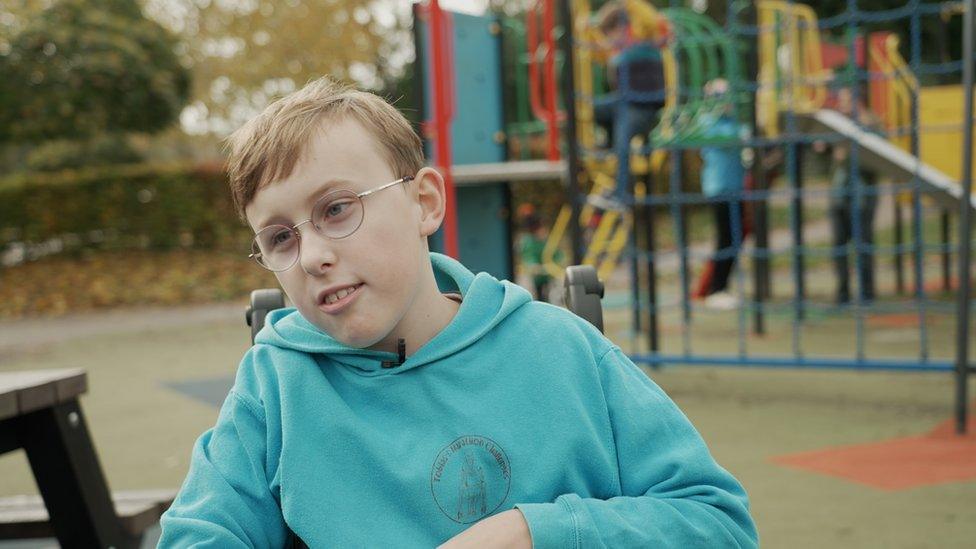
Tobias is 11 and has cerebral palsy and autism. He has raised more than £150,000 for various charities and received a British Empire Medal for his campaigning work.
Last year he completed a one kilometre walk around a park in his home city of Sheffield to raise money and draw attention to the issue of the lack of accessible and inclusive playgrounds in the city,
He wants a fully accessible and inclusive playgrounds to be built in Sheffield.
Tobias knows how important playgrounds can be for children.
"I loved going on the swing when I was little but I haven't used one since I was six years old," he told Newsround.
Like Seth, he is campaigning not for himself but for all children with disabilities who are missing out.
He said: "I want all playgrounds to have accessible equipment that kids with a variety of disabilities can use."
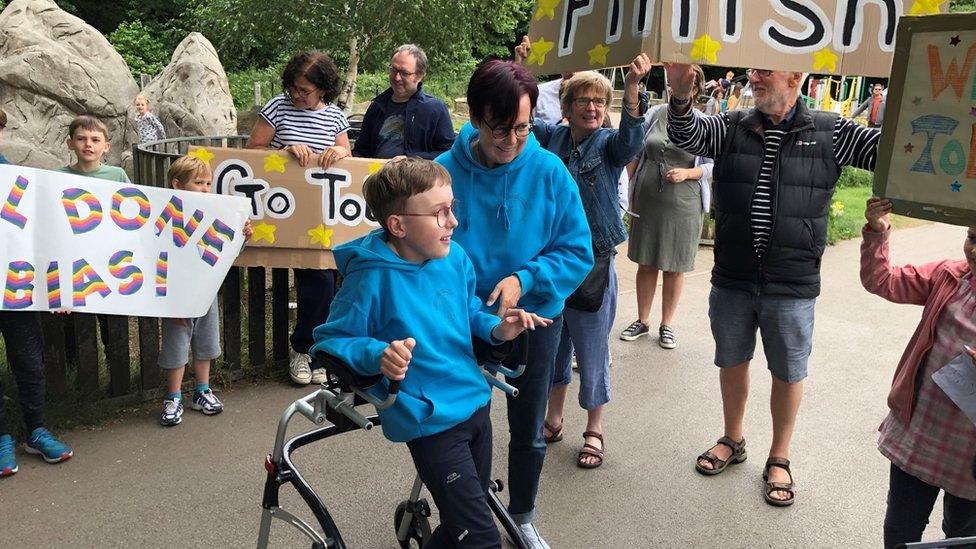
Tobias who has won awards for his fundraising has been campaigning for playgrounds that everyone can enjoy
Tobias was hoping that his campaigning would lead to a new fully inclusive and accessible playground in Sheffield. However the council has said that although this is an aim there are no immediate plans to build one.
A spokesperson for Sheffield City Council said: "Sheffield has a number of playgrounds with features to make them more accessible to everyone. When planning new playgrounds making them inclusive is a key priority.
"The city council hopes to develop a fully accessible and inclusive playground in the future and is working to secure funding opportunities wherever possible to support this."
Tobias is determined to keep on campaigning until he sees change.
"I want all children to enjoy playgrounds and have fun together and I'm not going to stop until this happens".
What makes an inclusive playground?
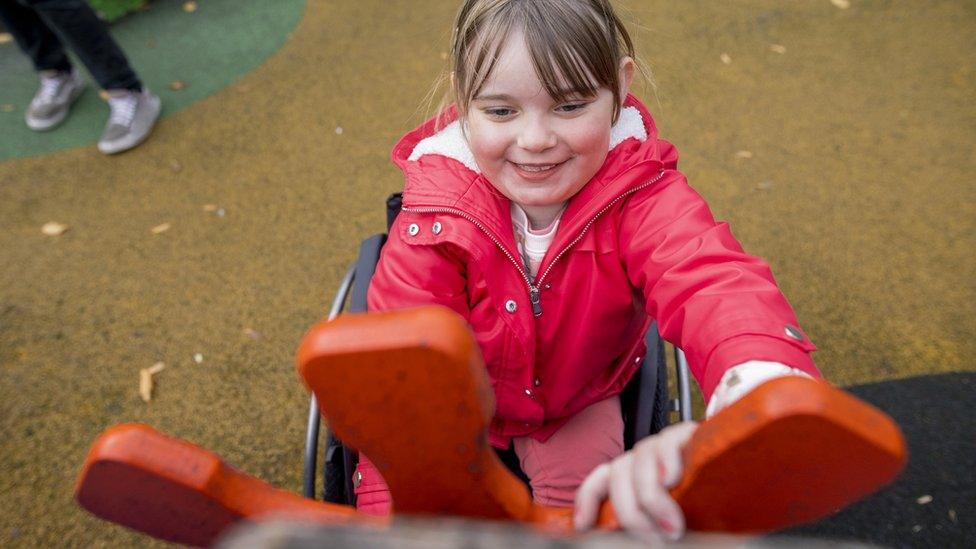
Both Seth and Tobias say playgrounds should have games for children who might not be able to be as active as other children
For Seth, the thing he remembers enjoying most when he was younger were games that children with more limited mobility could use.
He says he'd like to see things like brain teasers to make playgrounds more inclusive.
Tobias agrees that there needs to be equipment that children with a variety of disabilities can use and he also points out that it's important accessible equipment is not put in a separate area.
"It's also really important that this equipment is alongside the current equipment so we can enjoy using the equipment next to our friends and family," he added.
Scope gives five simple changes that would improve the accessibility of playgrounds. The charity says these would help enrich disabled children's lives across the country, but it also says that councils should consult with children that live in the local area.
1.Replace turnstiles and narrow gates with wider entrances and nearby drop curbs, so disabled children can get in. This makes the site more accessible for everyone, whether you're using mobility aids, or pushing a pram, or just need some extra room!
2.Include play equipment that can be used by wheelchair users, like accessible roundabouts or step-free structures you can roll onto.
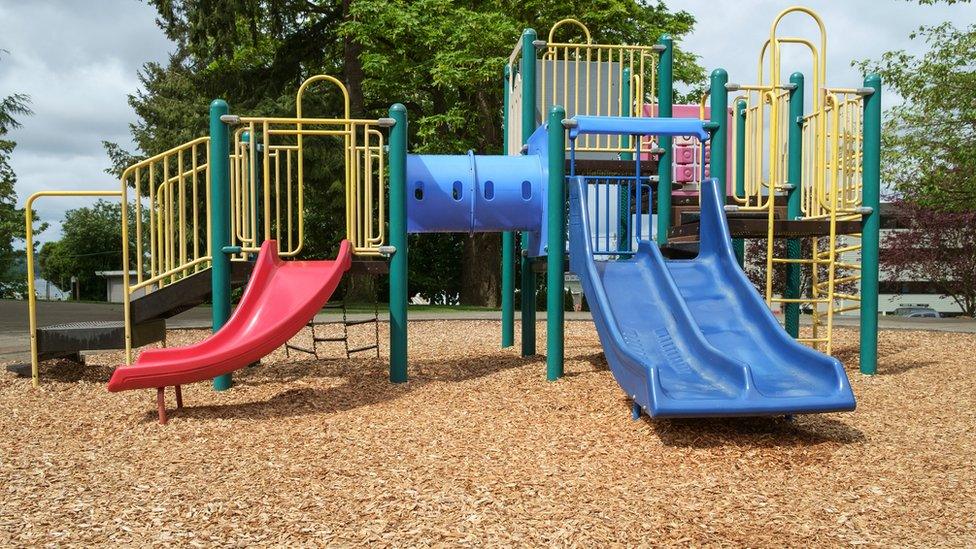
Playgrounds with woodchip surfaces are difficult for wheelchair users to go on
3.Avoid woodchip, gravel, and hard concrete floor surfaces. This way, children who fall more easily and wheelchair users can enjoy the playground, too.
4.Have a fence around the playground. This means children who might not be aware of the dangers of nearby roads are safe to have fun.
5.Include a range of sensory play equipment full of engaging colour, textures, and sound. This encourages all children with different sensory needs to play and explore.
What is being done?
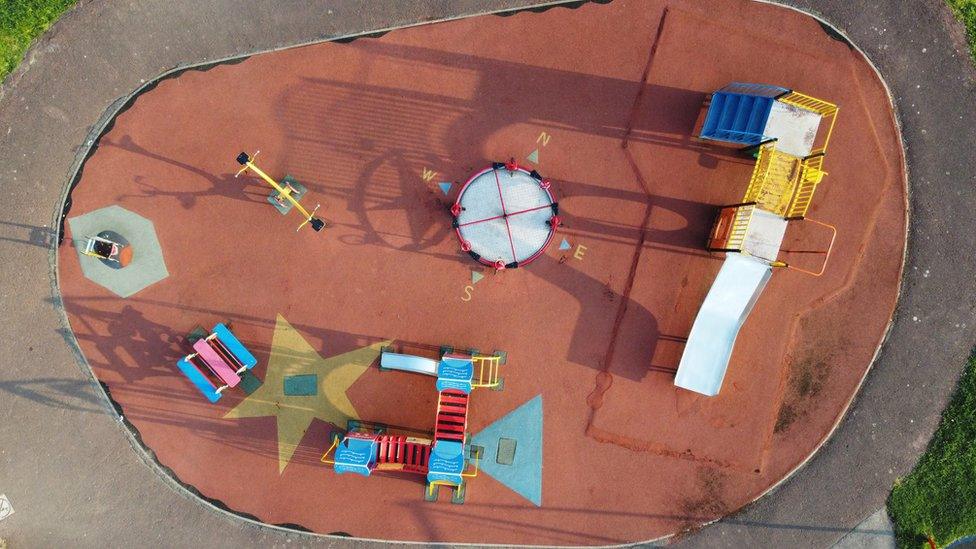
There have been promises made to improve playgrounds for children
A Welsh Government spokesperson said: "We are committed to improve opportunities for all children and young people to play and, in particular, to support inclusive play.
They told Newsround every local council in Wales, has to "assess for and secure sufficient play opportunities for all children, taking account of the needs of all children."
"The Welsh Government has made over £34m revenue funding available to local authorities to enable them to support the provision of play opportunities.
A spokesperson for the UK government said:
"All children deserve the same access to playgrounds and councils must think carefully about how to make them inclusive.
"We have given councils extra funding this year so they can improve their local areas, including playgrounds."
Figures from Northern Ireland show a similar picture to England and Wales. There are no up to date figures for Scotland, but last year the Scottish government gave a £60 million investment in renewing play parks across the nation.
